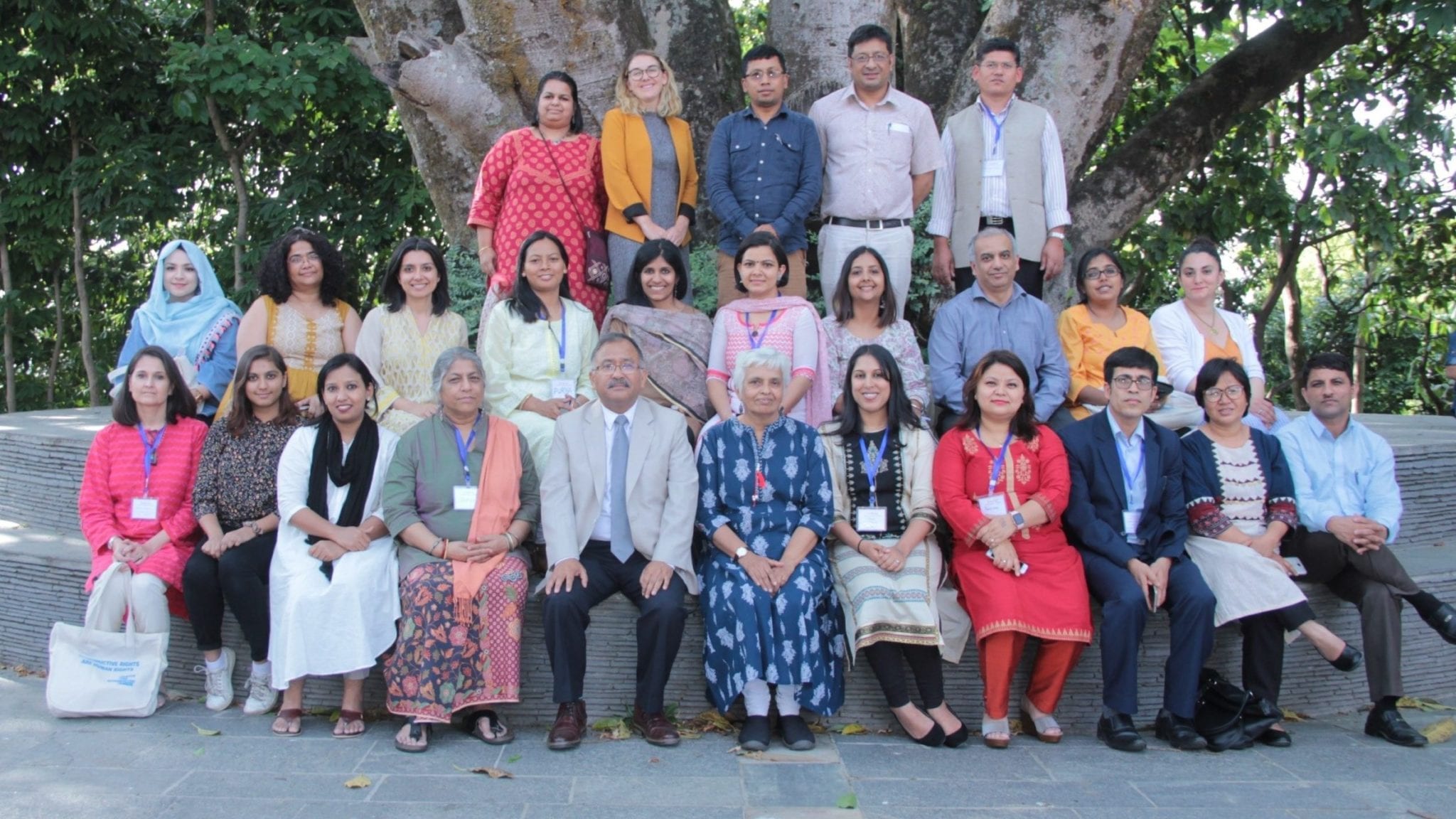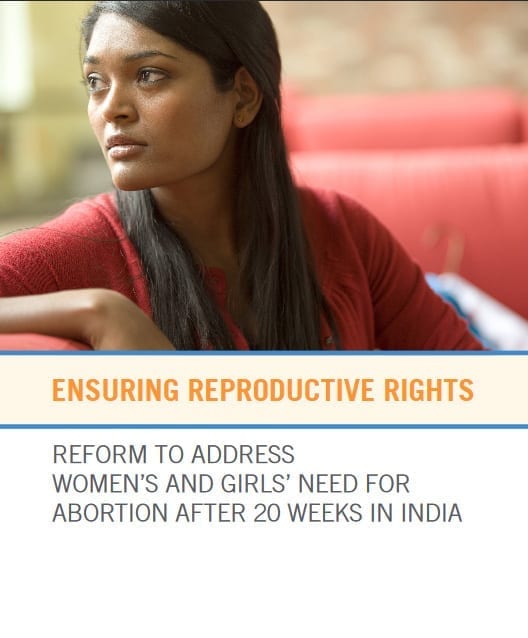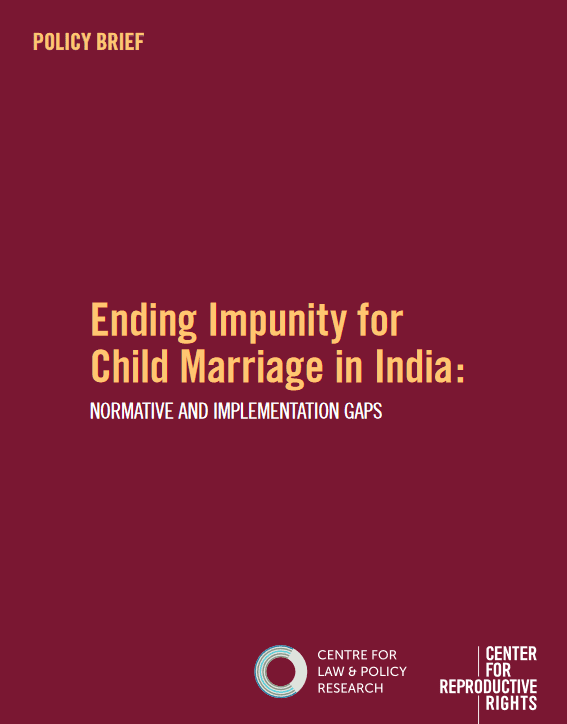South Asia Reproductive Justice and Accountability Initiative (SARJAI)

In 2012, the Center launched the South Asia Reproductive Justice and Accountability Initiative (SARJAI) – a network of organizations, independent lawyers and legal experts from the region working to advance reproductive rights. The network is committed to advance access to safe reproductive healthcare, secure legal recognition of women and girls’ reproductive rights, and hold governments accountable for their failure to guarantee such rights in law and policy. SARJAI regularly brings together leading lawyers and advocates from the region to discuss pressing reproductive rights issues, share best practices in advancing these rights, and chart the path forward for the realization of these rights across South Asia.
SARJAI network has been the catalyst for Center’s capacity building work in the region by bringing like-minded lawyers and academics together to promote accountability for reproductive rights violations. We have built the SARJAI network to include 19 organizations from six countries (Bangladesh, India, Nepal, Pakistan, the Philippines, and Sri Lanka) and four individual lawyers to which we provide technical support. The network regularly gathers together for peer networking and trainings and keeps connected with each other through virtual technologies. Through SARJAI, we have been cultivating a robust, coordinated, and sustainable transnational movement of reproductive health and rights champions.
Two pioneering litigations in Nepal and Pakistan were developed through SARJAI. Manju v. Government of Nepal is the first case to be filed in the South Asia seeking legal accountability for a government’s obligation to ensure women’s access to contraception. In 2017, the Supreme Court of Nepal issued a verdict ordering the government to make necessary legal and policy framework to ensure access of all women including the marginalized and impoverished women to all kinds of contraceptives as well as ensure their effective implementation. Syed v. Sindh is the first case in Pakistan seeking recognition of the widespread incidence of obstetric fistula as a violation of women’s fundamental rights to dignity and life, international and regional legal precedents. In 2019, the first decision from a High Court in Pakistan was issued recognizing the duty of the government to prevent and treat obstetric fistula, which affects hundreds of women in Pakistan every year.
In 2018, SARJAI formed a high level Advisory Committee consisting of 9 established legal experts and reproductive rights advocates from the region, including a former Chief Justice of Nepal; sitting Justice of Supreme Court of Nepal; former Member of National Assembly of Pakistan; Vice-Chairperson of UN CEDAW Committee; Director General of South Asia Initiative to End Violence Against Children (SAIEVAC); Senior Advocate of the Supreme Court of India; former Vice-Principal and Professor at ILS Law College Pune, India; Professor of Tata Institute of Social Sciences (TISS), India; and a Senior Activist from Bangladesh.
Since 2019, the two SARJAI Working Groups on Abortion and on Adolescents’ Reproductive Health and Rights have driven the network’s joint strategy and advocacy and are regularly immersed in wide ranging advocacy efforts across the region. The Working Groups have been hosting various webinars and conducting study to continue to deepen discussions on adolescents’ SRHR and abortion law reform in the region.
SARJAI and COVID-19 Response
In response to the onset of the pandemic in 2020, SARJAI have started an online exchange series focusing on the situation of SRHR in the region during Covid-19. Through these online exchanges, participants were able to share national-level updates to collectively identify best practices and opportunities for regional advocacy. It also issued the SARJAI Statement on Sexual and Reproductive Health and Rights (SRHR) during COVID-19. The statement has been endorsed by 20 SARJAI partner organizations and 3 individual members of SARJAI network.
Network Members
SARJAI is hosted by the Center for Reproductive Rights. The Center brings 25 years of expertise on SRHR that is uniquely combined with in-depth expertise on human rights, the rule of law and legal accountability. Our team of legal, advocacy and public health specialists, and human rights activists bring strong and rigorous knowledge of employing legal and human rights strategies to guarantee women and girl’s sexual and reproductive health and rights; bridging the gap between the humanitarian, human rights and development sectors. SARJAI has 19 organizations as network partners and individuals lawyers as network members.
SARJAI Work Highlights
-
Women of the World: Laws and Policies Affecting their Reproductive Lives South Asia
-
Fact Sheet: Nepal Supreme Court’s Landmark Decision Upholding the Right to Abortion
-
The forgotten, rejected and neglected women of Pakistan: Kiran’s story.
-
Groundbreaking Contraceptive Case Filed in the High Court of Punjab and Haryana at Chandigarh


